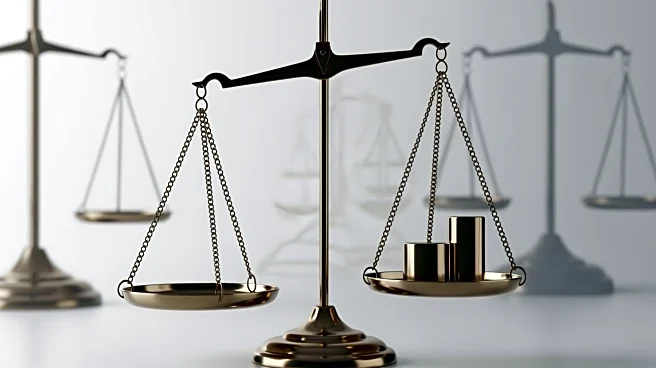What's Happening?
The largest law firms in the United States have significantly reduced their involvement in challenging President Trump's policies compared to his first term. An analysis by The Washington Post reveals
that large firms represented plaintiffs in only 15% of cases challenging Trump executive orders from January to mid-September, a stark contrast to the 75% during a similar period in his first term. This shift has placed a heavier burden on smaller and medium-sized firms, which have taken on more of the nearly 400 lawsuits filed in this timeframe. Trump's administration has issued over 200 executive orders, targeting various industries and institutions, including law firms. Some large firms have made deals with the administration, agreeing to provide pro bono work for causes supported by the government.
Why It's Important?
The reduction in large law firms' involvement in challenging Trump policies has significant implications for the legal landscape. Smaller firms, often with limited resources, are now shouldering a greater share of high-stakes legal challenges. This shift could impact the effectiveness and reach of legal actions against government policies, potentially affecting individuals and groups seeking to contest executive orders. The reluctance of large firms to engage in these cases may stem from Trump's executive orders targeting them, which could discourage legal challenges and reduce the availability of legal support for those affected by government actions.
What's Next?
As the Trump administration continues to appeal cases where judges have struck down its orders, the legal battles are expected to persist. Smaller firms and nonprofits may continue to collaborate to manage the increased workload. The legal community may also see further shifts in how resources are allocated to challenge government policies, with potential implications for the balance of power between large and small legal entities.
Beyond the Headlines
The situation highlights ethical and professional dilemmas within the legal industry, as firms navigate the tension between business interests and the pursuit of justice. The decisions by some large firms to make deals with the administration, while others continue to challenge it, reflect broader questions about the role of legal institutions in upholding democratic principles and the rule of law.











